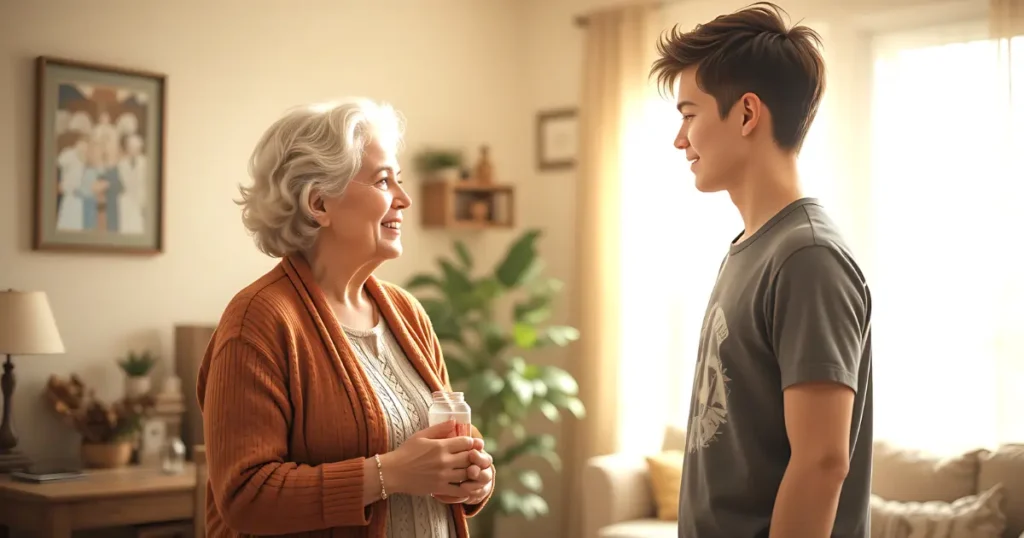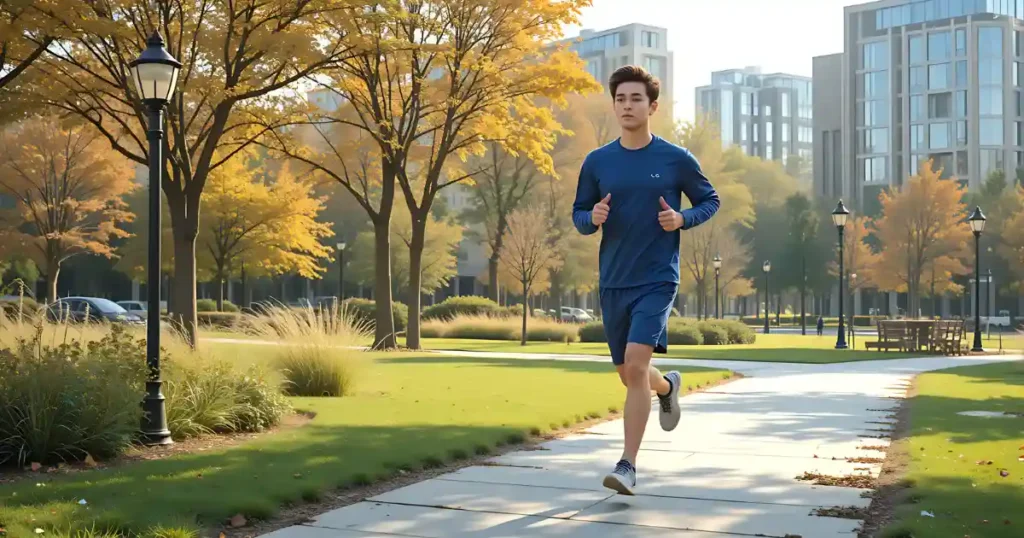
Introduction—When Divorce Breaks a Teenage Boy’s World
Have you ever looked at your teenage son and wondered, “Who is this kid, and where did my sweet boy go?”
“When my son stopped talking to me after the divorce, I thought he just needed space. I didn’t realize silence was his scream.”
The effects of divorce on teenage sons aren’t just something you read about—they show up in slammed doors, bad grades, blank stares, and mood swings that feel like a rollercoaster. Divorce doesn’t just separate parents—it shakes up the family dynamics and messes with a teenage boy’s emotional well-being.
Most of the time, boys don’t show pain the same way girls do. They put it in bottles. That’s why many parents miss the emotional effects of divorce on sons—until it shows up as anger, withdrawal, or risky behavior.
In this post, you’ll learn the real impact of divorce on teen boys—the quiet breakdown, the signs you shouldn’t ignore, and how to actually help your son start healing.
The Shocking Effects of Divorce on Teenage Sons
💬 “He stopped asking questions about life. He just existed.” — A divorced father of a 16-year-old son
When a family falls apart, teenage sons often experience emotional turmoil after the divorce, but they do so quietly. Their pain doesn’t always show in tears. It shows when they are silent, angry, or act like nothing is happening all of a sudden.
You may want to read: How to Stop Raising a Teenage Brat Right Now
Emotional shutdown and suppressed grief
Teenage boys need to “man up.” Their tears stopped, so they shut down. They bottle up pain until it hardens into anger or numbness. This kind of emotional neglect in divorced families can cause long-term damage to their adolescent mental health.
Disrupted identity and internalized blame
“Was it my fault?” is something boys often think. This quiet self-blame chips away at their confidence. The impact of divorce on masculinity and male identity can mess with how they see themselves and the world around them.
Relationship mistrust forms early
Watching love fall apart makes boys question every future connection. Teenage identity crisis post-divorce often includes deep-rooted fear: “If my parents couldn’t make it work, why should I trust anyone?”
You may want to read: Why Your Teenager Needs Church More Than Ever
Behavioral signs parents often miss
Pain doesn’t always scream. In some cases, it looks like:
- Rebellion: Breaking rules just to feel in control.
- Withdrawal: Locking the door, tuning out the world.
- Overachievement: Trying to “be perfect” so no one leaves again.
These are all real signs of the effects of divorce on teenage sons’ emotional development, yet many go unnoticed until there’s a crisis.
Parents often say, “He’s just being a teenager.” But when there is a divorce, it’s not just hormones; there is also sadness.
You may want to read: How to Make a Teenager Feel Valued Every Day
Masculinity in Crisis—How Divorce Disrupts a Boy’s Identity

Divorce can disrupt a teenage boy’s sense of identity, particularly when it comes to masculinity. The lack of a consistent male role model may leave boys confused about “how to be a man.” Their emotional situation can become even more challenging due to feelings of abandonment and rejection.
Some key effects of divorce on teenage sons include:
Absence of a consistent male role model
Boys watch men and learn how to be men. Many sons face a significant void when their father leaves or becomes distant. After divorce, the father-son relationship often becomes strained or completely lost. That absence? It leads to confusion, resentment, and sometimes actual hurt.
You may want to read: The Ultimate 10 Responsibilities Of A Teenager At Home
Confusion about “how to be a man”
Without someone to model strength and softness, teen boys may fall into toxic ideas of manhood, like hiding feelings, acting tough, or controlling others. The impact of divorce on masculinity and male identity starts here. He might feel lost between what he feels and what he thinks he’s supposed to be.
Feelings of abandonment and rejection
Many boys silently believe, “Dad left me.”
This belief triggers a teenage son’s emotional shutdown after divorce, causing him to pull away, lash out, or distrust everyone, including you.
Shame around needing emotional support
Boys often think it’s weak to ask for help because of outdated gender roles. However, what lies beneath the surface? They’re drowning. It gets worse after a divorce. They fear no one will understand their pain, especially if emotional support isn’t offered in a safe, judgment-free way.
These unspoken struggles shape the long-term effects of divorce on teenage sons, affecting how they see themselves, their relationships, and their future as men.
You may want to read: Teenage Daughter Grieving Loss Of Mother—How To Be There
Teen Emotional Suppression—The Dangerous Silence Post-Divorce
Boys who don’t show their sadness as much as girls do may suffer later. The “man up” culture can lead to emotional suppression, potentially resulting in trauma during adulthood.
💬 “My son never cried. That’s how I knew he was hurting the most.” — Single mother, Florida
Boys don’t always say they’re hurt. But their silence? It’s loud.
Why are boys less likely to express sadness than girls?
From a young age, boys hear things like “Toughen up” or “Don’t be soft.” So when their world falls apart, like after a parental divorce, they don’t cry—they shut down. That’s why the emotional effects of divorce on sons often go unnoticed. They’re in pain but not showing it.
You may want to read: Why Do Teenagers Hate Their Parents? Turn Conflict into Love
The psychological cost of “man up” culture
Boys learn to hide their pain instead of dealing with it when they are told to “man up.” This leads to the teenage son’s emotional shutdown after the divorce—a kind of invisible grief. The hurt gets worse when they don’t talk. This emotional suppression can lead to anger issues in teenage boys, mood swings, or even sudden coldness toward their families.
How emotional suppression becomes trauma in adulthood
What happens to boys who fail to comprehend what transpired? They have it. They are going to college. They are actively pursuing employment opportunities. They were in their relationships. Adolescent emotional regulation matters, and when divorce disrupts it, the impact can stretch far into their adult lives.
They might find it hard to trust their partners, stay emotionally distant, or keep doing things that aren’t good. That’s how the long-term effects of divorce on teenage sons become a lifelong shadow.
You won’t always see the pain. But if your son barely talks anymore, acts like nothing matters, or never lets his guard down, he’s not okay. He’s just excellent at hiding it.
You may want to read: Toxic Home Life: Parents Fighting Effect On Teenager
Academic and Social Fallout—The Hidden Cost of Divorce

“Jake, 15, went from honor roll to suspension within 6 months of his parents’ separation.”
He had never gotten into fights or skipped class before the separation. What happened after that? Jake stopped caring, and nobody noticed until it was too late.
The impact of divorce on teenage boys can extend beyond emotional struggles, affecting their academic performance and social relationships. Here are some possible outcomes:
School disengagement, grade drops, and discipline issues
Many teenage boys start falling behind in school after a divorce. The pain at home spills into the classroom, and they lose focus, stop turning in homework, or even get into trouble.
Teens often ignore the real academic impact of divorce until it causes significant damage.
You may want to read: When a Son Loses His Mother—How to Be There
Isolation from peers, over-reliance on screens
Some teens turn inward when the home feels unstable. They spend less time with their friends and more time on games or social media. This kind of teen stress leads to relationship difficulties in teen boys and a fading sense of connection.
Increased risk of substance abuse and self-harming behavior
Studies show that teenagers coping with parental divorce can include dangerous choices—vaping, drinking, cutting, or worse. It’s not about rebellion. It’s for dealing with pain.
The mental health effects of divorce are serious, especially when boys don’t have healthy outlets or safe adults to talk to.
These are the hidden effects of divorce on teenage sons. They don’t always shout for help, but their grades, behaviors, and social life do.
You may want to read: My Teenage Son Hates Me But Loves His Dad: Fix This Now
The Long-Term Impact on Trust, Love, and Relationships
“Divorce doesn’t just change his childhood—it rewires how he loves forever.”
Teenage boys who experience parental divorce may face significant challenges in their future relationships. Here are some possible long-term effects:
Difficulty forming romantic connections
Many teenage sons struggle to open up to others after a divorce. The pain of broken family ties can make it challenging for them to trust new relationships. They may avoid social situations out of fear of experiencing hurt again.
You may want to read: How to Connect With Your Teenage Son: The Parent’s Guide
Fear of commitment or deep emotional intimacy
Watching their parents split often teaches boys that love doesn’t last. This can cause a real fear of commitment. They might avoid serious relationships or shut down when things get too close, showing classic signs of relationship mistrust forming early.
Repeating patterns of parental conflict
Unfortunately, some boys carry the conflicts from their parents into their relationships. They might argue more or struggle with emotional regulation, reflecting the behavioral disruptions in teens caused by witnessing constant parental fights.
The long-term effects of divorce on teenage sons’ relationships can be painful, but understanding these challenges is the first step toward helping them build healthier connections.
You may want to read: How to Be a Good Parent to Young Adults: A Comprehensive Guide
What Most Parents Get Wrong After Divorce

“We think we’re helping. But these 4 mistakes are crushing our sons when they need us most.”
Parents often make critical mistakes after divorce that can exacerbate the emotional challenges their teenage sons face. Here are some important mistakes to avoid:
Assuming silence means stability
Many parents think that if their son isn’t causing trouble or complaining, he’s doing fine. But silence can be a warning sign of emotional shutdown and suppressed grief. Boys often hide their pain so as not to make waves, which means their parents don’t know how they really feel.
Speaking negatively about the other parent
Badmouthing a co-parent might feel justified, but it harms your son’s father-son relationship after divorce or the mother-son bond post-divorce. It can deepen his confusion and fuel loss of trust in family relationships.
You may want to read: Unusual Effects Of Screen Time On Teenage Brain And Behavior
Not creating a safe emotional space
Teenage boys need a place where they can be honest without worrying about being judged or punished. When parents don’t offer emotional support, boys retreat further into themselves. Such behavior blocks healing and worsens the mental health effects of divorce.
Using teenage sons as emotional buffers
Some parents lean on their sons for comfort or to talk about issues they’re having as adults. This puts unfair pressure on boys and disrupts healthy parental relationships. It can trigger behavior problems in teen boys and hurt their emotional growth.
It’s important to get these things right. Doing so can help you break the cycle of pain and start rebuilding trust with your son.
You may want to read: How to Motivate a Teenager to Exercise Without Nagging
Healing Begins With You—Rebuilding the Parent-Son Bond
💬 “We started walking the dog together each evening. That’s when the healing began.” — Divorced father, Michigan
Fixing the father-son relationship after divorce or the mother-son bond post-divorce takes time and effort. There is no quick fix, but being patient every day helps a lot.
Daily consistency and patience over quick fixes
Showing up every day—even in small ways—builds trust. Your son needs to know that you can be counted on and that you are willing to listen. Such behavior helps with his emotional well-being post-divorce and starts to ease the negative effects of divorce on adolescent feelings.
Open-ended conversations and active listening
Instead of grilling him with questions, try inviting him to share when he’s ready. Let him talk without interruptions. This kind of emotional support creates a safe space where your son can slowly open up.
Apologizing for the emotional fallout, not just the separation
Parents who are divorcing their son may forget to say sorry for the pain they caused. A genuine apology for the pain—not just the breakup—can break down walls and begin healing the psychological trauma teenage boys feel.
Rebuilding the father-son and mother-son dynamic individually
Each relationship is different. Parents should focus on the special bond they have with their kid and not compare or compete with other parents. This process strengthens the family relationships and helps your teen regain a sense of stability.
Healing won’t happen overnight, but your commitment can turn pain into progress.
Emotional Support Systems That Actually Help

“Your love is crucial—but it’s okay to call in reinforcements.”
Effective emotional support systems are crucial for helping teenage boys overcome the obstacles associated with parental divorce. Some key support systems include:
Teen-focused therapy (individual and group)
Therapy designed just for teens offers a safe place to work through the emotional effects of divorce on sons. Boys can talk to a skilled counselor one-on-one or in a group. This helps them grasp and manage their feelings.
School counselors, mentors, coaches, and extended family
Support doesn’t have to come only from parents. During hard times, trusted people like school counselors, sports coaches, or family members can offer support and direction. These connections strengthen family relationships and help with adolescent emotional regulation.
Peer support groups for children of divorce
Sometimes, talking to other kids who’ve been through the same thing is the best medicine. In peer groups, it’s safe to talk about your problems and learn beneficial ways to deal with them. This procedure helps reduce the teenage identity crisis post-divorce and feelings of isolation.
Involving boys in structured emotional expression
Teenagers can express themselves in ways that words alone cannot always do. Art, music, and martial arts are some examples. These outlets support emotional well-being post-divorce and build confidence, helping boys work through pain safely.
Creating a strong emotional support network is key to helping your son heal and grow beyond the effects of divorce.
Strategies for Co-Parenting Teenage Sons the Right Way
“Your son isn’t a ping-pong ball. Stop serving him back and forth.”
Effective co-parenting strategies are crucial for supporting teenage sons after divorce. Here are some important approaches:
Aligning parenting approaches post-divorce
When parents agree on something, it becomes more stable in a crazy world. Agreeing on rules, expectations, and discipline helps your son feel secure. This consistency supports his emotional well-being post-divorce and reduces behavior problems in teen boys.
Prioritizing emotional health over custody battles
Fighting over time or control only adds stress for your son. Instead, focus on what matters most—his mental health, the effects of divorce, and healing. Giving up power struggles shows your teen that you care about how he feels.
Letting the teen have a say in schedules, holidays, and transitions
Allowing your son to participate in decision-making will restore his sense of control over his life. This will respect his adolescent developmental disruption and ease anxiety around big changes.
Never using sons as messengers or emotional confidants
Putting your teen in the middle of adult problems forces him to carry a weight he shouldn’t bear. This damages parental relationships and increases teen stress. To protect your son’s emotional wellness, make sure that you and your partner talk to each other directly.
Doing co-parenting the right way can help your son feel loved, supported, and less caught in the middle.
Coping Mechanisms That Empower Teenage Boys

“Real strength isn’t silence—it’s knowing how to heal.”
Effective coping mechanisms can help teenage boys overcome the obstacles associated with parental divorce. Here are some key approaches:
Journaling, fitness routines, and community engagement
Writing down feelings in a journal lets boys process their thoughts privately. Physical activities like sports or simple workouts help release stress and boost mood. Getting involved in clubs or volunteer work builds a sense of belonging and purpose, supporting teenagers’ emotional impact in a healthy way.
Building resilience without suppressing emotions
Encourage your son to face challenges head-on and to feel his emotions. Do not force him to “toughen up” too quickly. True adolescent emotional regulation comes from recognizing emotions, not hiding them.
Encouraging healthy vulnerability through role models and media
Boys need to see men who demonstrate strength by being honest about their feelings. Books, movies, or mentors that model this can break down the stigma around teenage boys and emotional suppression post-divorce. This helps them feel more comfortable and safe in sharing themselves.
These coping tools empower your son to heal and grow stronger beyond the effects of divorce on teenage sons.
Conclusion—From Broken to Brave: Your Son’s Healing Starts With You
The effects of divorce on teenage sons run deep, touching their emotions, behavior, and sense of trust. They might act out, shut down, or struggle silently, but behind it all is a boy searching for stability and love.
As a parent, you have the power to be his safe place. You don’t need to know everything or fix every issue. Being there, listening, and showing up are the most important things, even when it’s hard.
Start the conversation. You don’t have to fix everything, but you must be present for everything.
For more support and advice, explore our posts on Teenage Parenting. Please convey your experiences or questions in the comments below—no one should face this journey alone.
FAQs—Straight Answers About Your Teenage Son and Divorce
How can I talk to my teenage son if he refuses to open up after the divorce?
Start by creating a safe, pressure-free space. Instead of pushing for answers, try gentle, open-ended questions and show patience. Your son may feel safer talking to you if you do. Engaging in activities with him, such as going for walks or sharing hobbies, is important. Remember, rebuilding trust after parental divorce takes time—consistency and emotional support matter most.
Will my son blame me for the divorce later in life?
It’s common for teenage boys to internalize blame or feel confused about their parents’ split. This is one aspect of the emotional effects that divorce has on sons. With time, honest talk, and steady support, many sons get a better sense of what’s going on and can separate their feelings from truth. Rebuilding your relationship with patience can reduce guilt and foster healing.
Can rebuilding our bond work even if years have passed since the divorce?
Absolutely. Healing the father-son relationship after divorce or the mother-son bond post-divorce is possible at any stage. It may take extra effort and openness, but showing up consistently and being emotionally available helps repair wounds, even years later. No matter how much time has passed, your strength can turn pain into growth.









